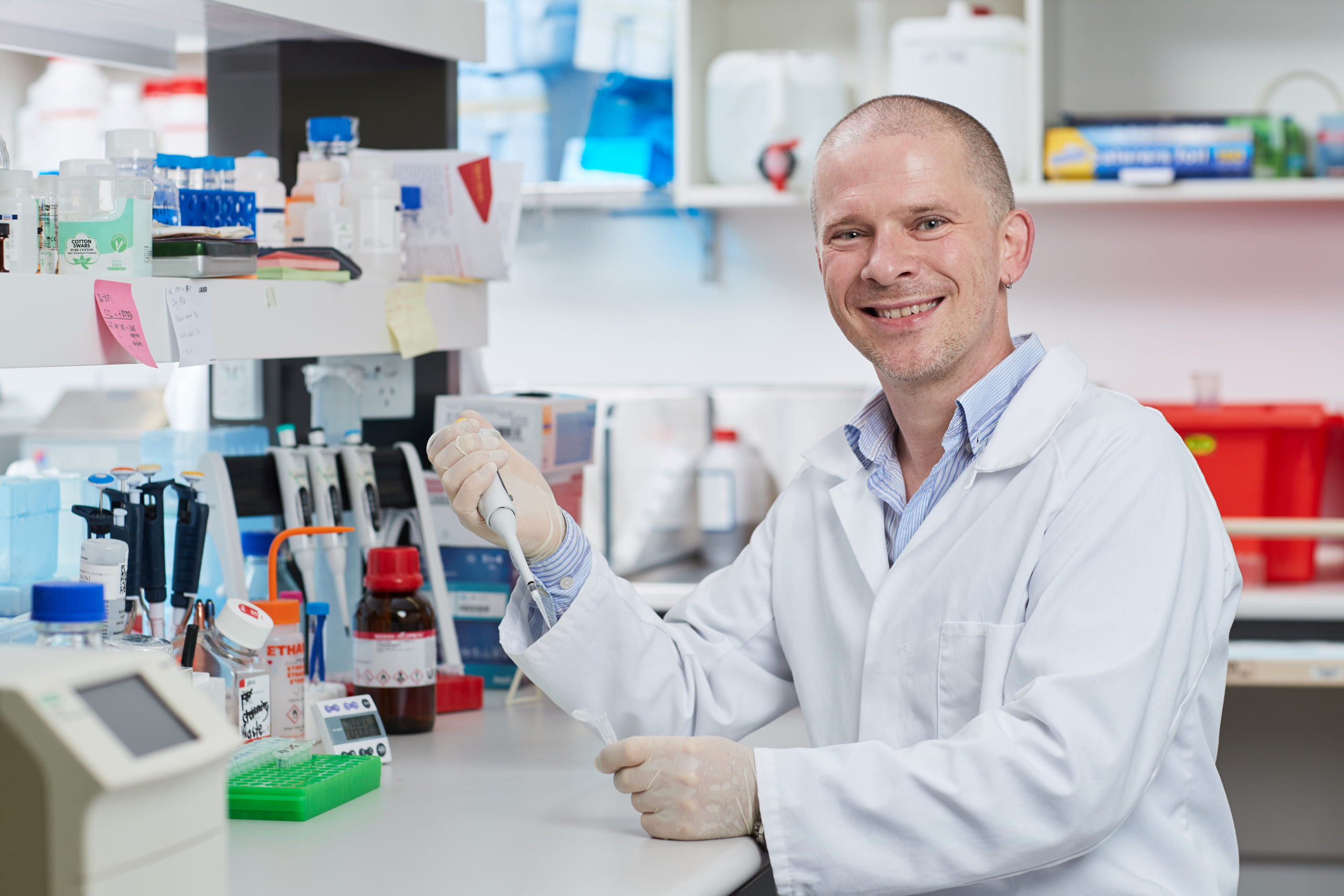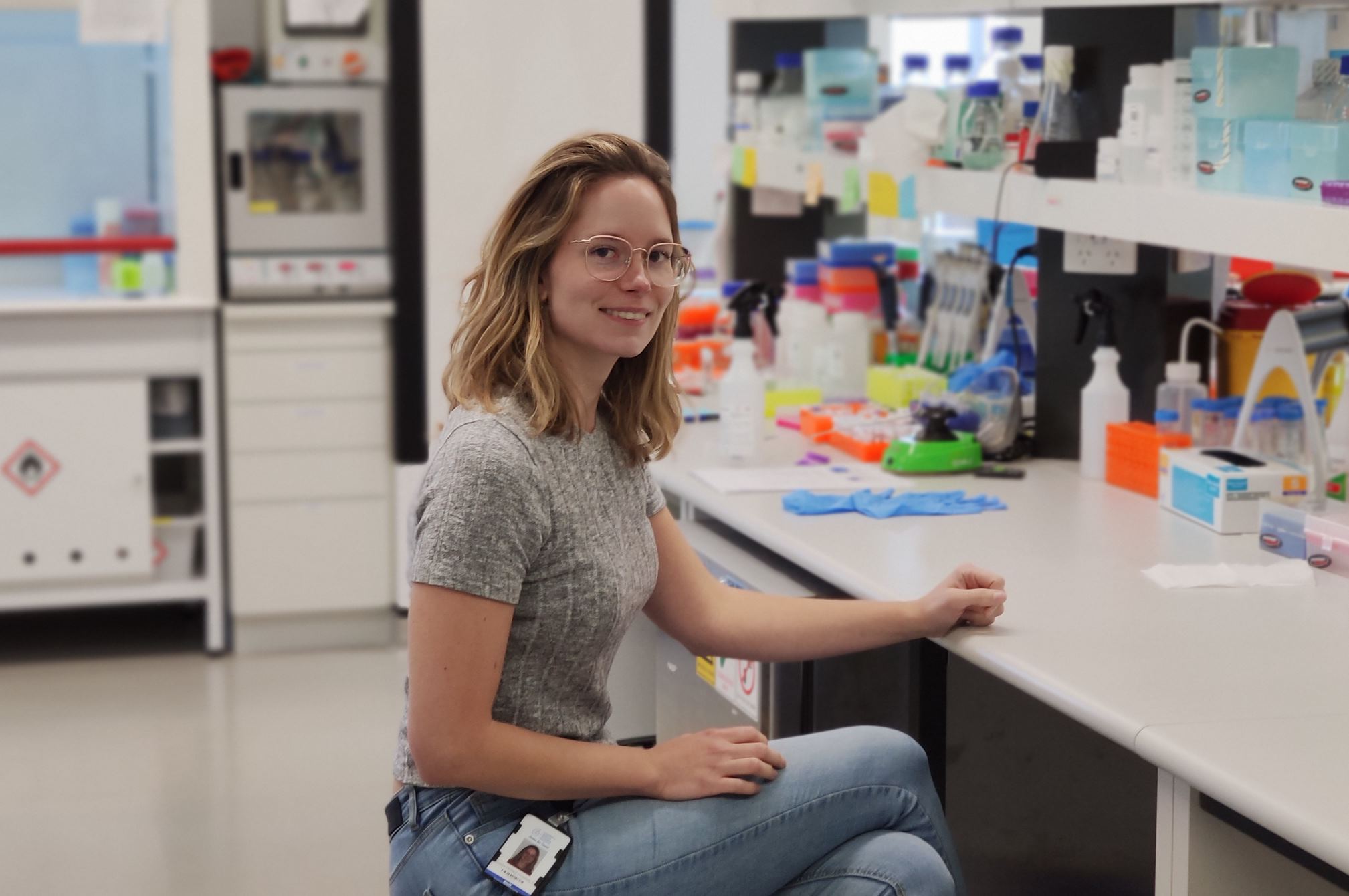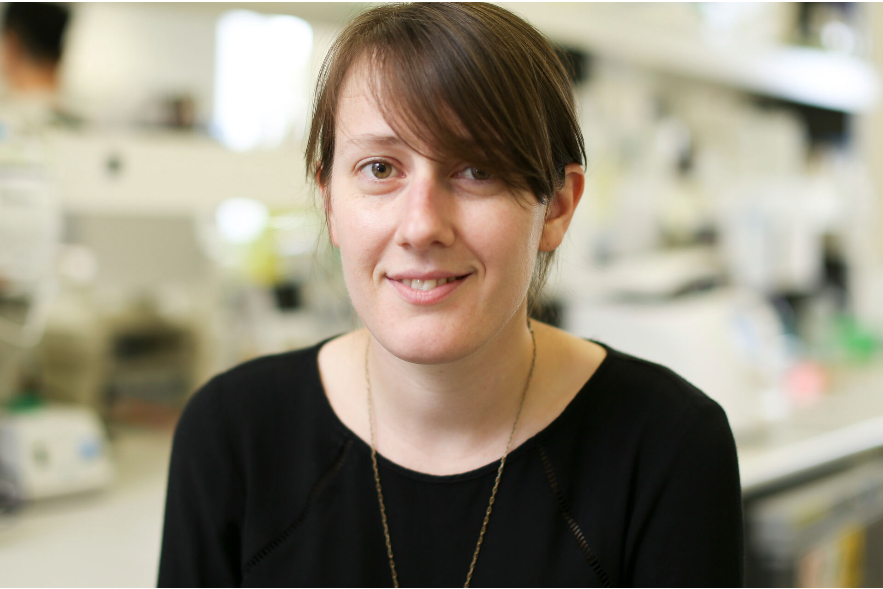Research Projects
Gene Therapy Treatment –
Stage 2
All-in-one gene therapy treatment for cystic fibrosis – stage 2
Project Duration – 2 Years
Investing in gene therapies for everyone with cystic fibrosis
Associate Professor Leszek Lisowski and his team at Children’s Medical Research Institute (CMRI) and the University of Sydney are developing gene therapy tools to correct CF mutations in lung cells.
With Cure4CF’s funding, A/Prof Lisowski’s team will:
- Develop a universal gene-editing strategy to correct CF causing mutations in the CFTR gene.
- Develop and test novel systems to deliver those tools to the lung.
- Establish and validate models of CF using human lung tissues and patient-derived organoids to assess the clinical application of the delivery and editing system.
- Evaluate how well CFTR function is restored and generate data in support of clinical translation of this work.
Why gene therapy?
Gene therapy has the potential to correct CFTR mutations – the root cause of CF – for all patients, regardless of how rare their genotype. It is an exciting area of research that may hold the answer to curing CF and many other genetic diseases. The discovery of the gene responsible for CF in 1989 has led to the possibility of developing therapies that can deliver tools to cells which can correct non-working genes. While it may sound simple, there are many factors which make gene therapies challenging. A key challenge is how to safely deliver the tools into human cells. Viruses have been key candidates because of their ability to target and enter human cells for replication. Some of the most investigated viruses are adeno-associated viruses (AAV). AAVs exist naturally in humans and have evolved over time to target specific cell types. This ability can be harnessed to package information and transport it to specific cells within the body.
What is so unique about this gene therapy project?
This project benefits from previous successes in the field of gene therapy and looks to apply these validated tools specifically to CF. Specifically, it aims to develop and validate strategies to correct the disease-causing mutations and establish the safest and most effective delivery method to bring the therapeutic cargo to the affected cells in the lung and other organs. This collaborative project will utilise the most advanced preclinical models of the human lung, such as human lung tissues and patient-derived lung organoids (‘organs in the dish’).
A/Prof Lisowski’s team specialises in the development and translation of AAV-based therapeutics. Through their earlier work in this area, the team have identified three novel AAVs from human lung cells which can be now explored in this new project. Working with colleagues in Melbourne, the group has also established strategies for testing these therapies in the most advanced models of human lungs, which will take the project one step closer to clinical translation.
Will there be a pathway to moving this therapy into the clinic?
This team has been working on gene editing therapies for CF for more than two years, and their promising results mean that the work is ready to take the next step. While this therapy is still in early stages, these are essential experiments required to determine the best and safest way to edit the CFTR gene and deliver this to cells. Following this work, the team hope to begin dose-estimation studies to establish the most effective dose and to inform the strategy for clinical dosing and delivery. The team works closely with the CF clinic at the Children’s Hospital, Westmead which is one of the largest in Australia.
About the Team
Associate Professor Leszek [pronounced: Leshek] Lisowski is a world vectorology expert with over 17 years of experience in developing and manufacturing viral vectors for human gene therapy. He leads the Translational Vectorology Research Group, which specialises in the development and translation of advanced gene therapeutics targeting paediatric genetic disorders.
Doctor Andrea Perez-Iturralde completed a PhD in Applied Medicine and Biomedicine developing expertise in the transduction mechanism of Adeno-associated viral (AAV) vectors. She joined the Translational Vectorology Research Unit at CMRI in July 2022 to develop different variants of AAV vectors for therapeutic purposes.
Kimberley Dilworth obtained her undergraduate degree from the University of Sydney and joined the team in 2015. As a PhD candidate, she is an expert in the design, production and purification of viral vectors based on AAV. She is now optimising production methods for large scale clinical AAV manufacturing.
Professor Hiran Selvadurai is a Fellow of the Thoracic Society of Australia and New Zealand, Head of Department of Respiratory Medicine, and Director of Cystic Fibrosis at The Children’s Hospital Westmead NSW. He has received research funding from NHMRC, Canadian CF Foundation and is an investigator on numerous CFTR modulator clinical trials.

Associate Professor Leszek Lisowsk
CMRI

Doctor Andrea Perez-Iturralde
CMRI

Kimberley Dilworth
CMRI

Professor Hiran Selvadurai
The Children’s Hospital Westmead
